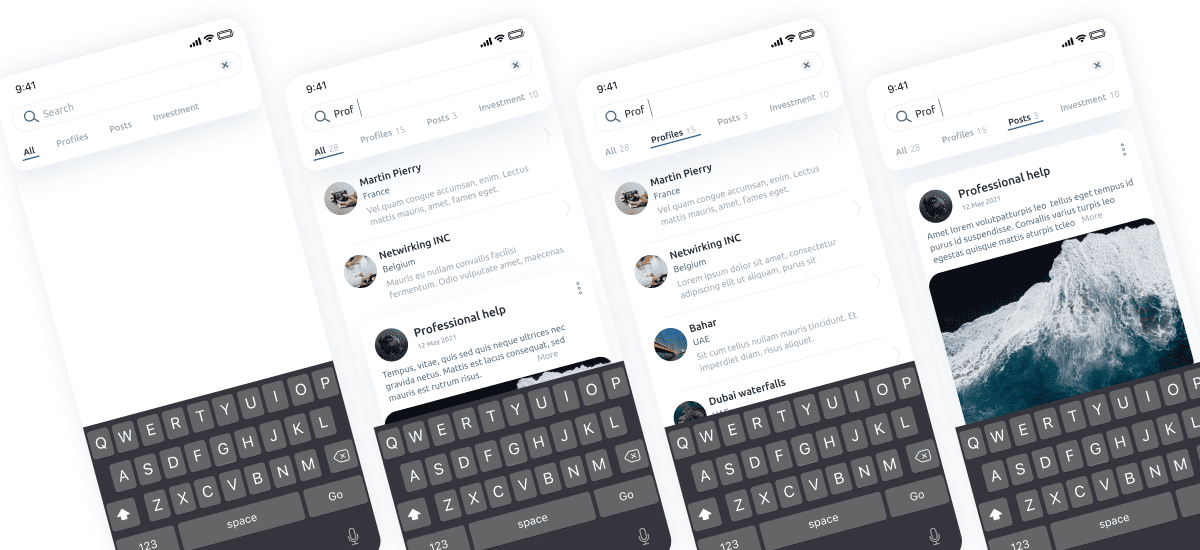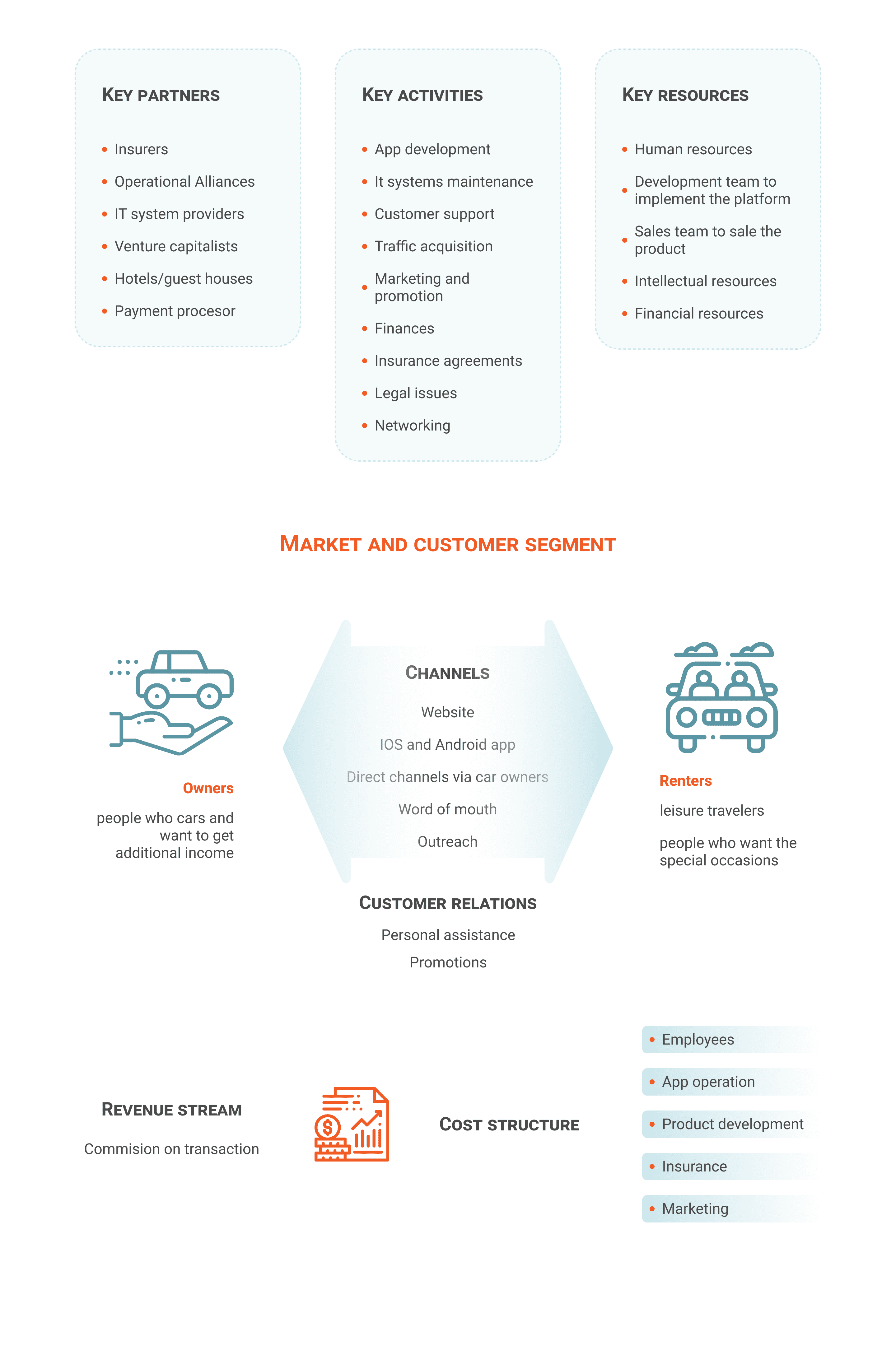How to Build a Car Rental Marketplace: Must-Have Features to Implementation

A car rental marketplace is a website or mobile app for paid granting or obtaining possession of cars for a specific period that lasts from hours to months.
Cars have become of vital importance in our daily lives as they provide mobility and comfort. In the modern state of things, people get low-pressurized on buying a car and push for rent on the specialized marketplaces that are believed to be more cost-effective.
Let’s prove it with some statistics.
Statista forecasts the rise in the customer number in the world car rental market for up to 291.5 million by 2023. According to Zion Market Research, the global car rental market will soar to up to $125 billion by 2022 and $131 billion by 2026 if we refer to Mordor Intelligence.
Examples of booming and well-known marketplaces:
- Avis Car Rental
- Turo
- Car2Go
It gets clear that car sharing marketplace development is a killer. This article will put you in the picture of how to build a car rental marketplace and meet end-user needs.
Car Rental Marketplace Types
The car marketplace work map is pretty known to the public. A car owner, whether they are an individual or a business entity, presents their car for rent alongside information on the car's technical specifications, rent duration, etc. The renter books the car and takes it into usage and returns it after a defined time.
There are several types of car rental marketplace
- b2c
- p2p
- Non-profit
- b2b
but in this article, we touch on only b2c and p2p as they grasp the biggest part of the market.
b2c car rental marketplace is a medium between a business and customer while in a p2p marketplace the car exchange is carried out between individuals.
Let’s compare these 2 models of car rental business:

Core Features for Renters to Be Brought in Car Rental Marketplace Development
Marketplace unites 3 sides: renter, car owner, and marketplace owner. For flawlessly running a marketplace a set of features must be built in for each role. No core features should be omitted. We made a list of the most must-have features for each.
We’ll start with key features that are to be implemented when creating a car rental marketplace to set the seal on renters' experience:
Newfangled Reservation Calendar
A calendar with date and time selection is good but falls short. Polish it up with a minimal rental timeline, reserved delivery timeline, option to select the start and the end dates, and buffer term for vehicle maintenance and examination. Without these features, the car rental process will be messed up as both marketplace admin and car owner are likely to miscalculate car availability. Using third-side services is an option but is super uncomfortable and will result in losing both: renters and car owners.
Filtered Search Engine
Jack up the user experience by letting the users drop off the necessary characteristics. Yet, it’s a great tool for admins to gather data on bounce rates. The filters should be made up of:
- Distance
- Pricing scalability
- Car availability
- Car type
- Fuel type
- Engine type
- Production year
- Maintenance check-up
The list may be prolonged leaning on the marketplace owner’s vision.
Comparison
The Compare option is not widely-used, but we believe it’s a must-have to build a car rental marketplace that’s aimed to be well-heeled. Give the means to weigh up a few cars placed on the marketplace screen to shoot up the renters' confidence and user experience.
Rental Time Extension
The rental duration may be extended via direct messages with car owners but for us, building car rental marketplace with separate features will be a winning option. The feature should be synced with the booking calendar to let renters see if a car is available for an extended period, or has already been booked. Implementing the feature will save time for both renters and car owners.
Chat Support
User questions and issues are inevitable in car rental marketplace development. Every user wants their issue to be resolved in real-time mode if not in a heartbeat. The solution is to think up a help center that includes FAQ and Chat Support.
Core Functionality for Car Owners in Car Rental Marketplace Development
The features for renters are puzzled out. Now let’s switch to another user role - car owners - and the features to keep them in.
Revenue Calculator
Getting to know how much a car owner can earn on the marketplace is all-important as revenue is a mover in this case. Integrate a revenue calculator based on car info: production year, model, fuel type, etc.
Minimum Rental Timeline and Buffer Terms
We’ve already mentioned these features for renters. Logically, someone needs to set the minimal rent duration and buffer terms for renters to see this. We believe the most optimal way is to build these parameters in the listing stage.
SEO and Marketplace Ranking Boost
Every car owner is likely to prefer being able to promote their ads and get them in the top search positions. Rig the marketplace out with slug hike and alt tags for car pictures to help car owners get around.
Media Management
This feature is of the essence for both renters and car owners, but the latter is in control of uploading the media files. Give the means of uploading images, videos, and PDF files containing car details while crafting the listing.
Other many different functionalities:
- Order record
- Permit/Refuse listings
- Handle car delivery fees
- Customized notifications option
- View rental status
- Manage financial information
- Discounts handling option

Core Features for Car Sharing Marketplace Admins
Managing a marketplace is a big thing that requires a high level of responsibility and processes. The car rental marketplace developer’s task is to make the admin as much easy and convenient as possible. We gathered and sorted out the saving grace functionality for admins.
- Moderation Features
- Permit/dismiss listings
- Add, delete and manage uploaded listings
- Form and moderate listings categories
- Assign fee value
- Preview and download statements
- Search options to scan customer accounts and listings
- Import/export listings and platform data in XLS form
- Build and moderate sub-admin accounts
- Cancel or disable customer accounts
- Order record availability
- Currency and area settings
Content Control Functionality
- Add, delete and modify blogs, web pages, screens
- Add/delete product visuals
- Build and modify product labels
- Include and administer social media channels
- Publish/remove pages and blogs
- Insert or remove pictures in the product
- Introduce and deal with testimonials
- Allow sub-admin to read, write and modify
Marketing Functionality
- Edit URL
- Meta titles and details introduction and modification
- Affiliate accounts adding and removal
- Deal with home screen sliders and banner pictures
- Discounts formation and modification
- Discounts Enabling/disabling
Product Management Functionality
- Logo and name modification
- Email and actual address specifying
- Navigational links inserting
- Chat activation/deactivation
- E-mail and SSL server settings customization
- Product data import/export
Security Enabling Features
- Document care
- Rent security supervision
- eSign and agreement administration
- Car check-up
- Paid cancellation
Fleet Management System
Fleet administration software is designed for remote management of employees, cars, and routing optimization. A great tool to ease the admin work process. Our team has a case of successful development of such a complex system.
Business Models to Build a Car Rental Marketplace That Will See the World
When making a car rental marketplace, think over the business model in advance. Money is always a tricky moment and the revenue method selected should be painless for users.
1. Rental Commission
Commissions-based revenue type is the most commonly used marketplace business model. Fees are cut from the amount of rent cost and come in two formats:
2. Fixed-rate
3. Percentage
Also, additional fees may be introduced: delivery fee, low-experienced driver fee, airport fee, driving assistant fee, subscription packages.
Stable income is delivered once in a while. Subscription payment is charged on a monthly/yearly basis. Users find this type of business model is more favorable as it frees them from being billed for every rent. For marketplace admins, subscriptions bring higher revenues and bind users with the product.
4. Branded Listings and Promotions
A featured listing is designed to boost car rents by highlighting an advertisement. A car owner can make his rental listing stand out by making it colored or pin on the top of search results by using promotion methods. Branded listing and Promotions conditions may be customized but make sure they are too tough.
5. Added services
Extra revenue may be collected by ensuring add-ons: car cleaning, driving assistance, insurance, and other services.
Car Rental Marketplace Business Model Canvas

The costs to create a car rental marketplace go up and down owing to:
- amount of work;
- type of development team;
- hourly rate;
- contractual obligations
The cost to build the car rental marketplace platform is shaped by a few steps:
- You need to determine what product you want to develop: a mobile app, website, or both.
- Then we go for time estimation which rests on the functionality and is calculated in hours.
- After the timeline is estimated we multiply the time by the team’s hourly rate. Hourly rates are subject to geographical location and team type. The Teams of developers come in 2 types.
In-house team time
Outsourced team
! In-house teams are the most expensive as they require additional expenses like sick leaves, office rent, equipment, Insurance, etc. Hiring an outsourced developer is a cheaper option with a fixed hourly rate.
Yet, the geographical team’s presence influences the costs to make car rental marketplace due to the differences in living standards. Qubit Labs provides the following number of developers’ hourly pay depending on the region:
Western Europe - $110-200;
Eastern Europe - $20-50;
North America - $150-230;
South America - $30-50;
Africa - $20-40;
Australia - $100-180;
Asia - $15-40.
Making a car rental marketplace enabled with the core functionality costs somewhere between $20,000 to $40,000. If you have an idea or clear vision for creating a car rental website or mobile app, Celadon is up for cost estimation and finding the best solutions for a project's implementation. All you have to do is drop a line and share your idea in mind.
Consider Celadon Solutions to Start a Successful Car Sharing Business
Celadon is a full-cycle development company that will take you on the luring journey of the car rental marketplace.
We have vast expertise in marketplace development. With the up-to-date technology stack, blue-sky thinking, and result-oriented approach we’ve brought to life numerous projects. The ventures were initiated as MVPs to test the market and later evolved into full-fledged marketplaces.
Are you wondering how to create a car rental website or searching for a team to build a p2p car rental marketplace? Whatever your request is, we’re here to deliver the best tech solutions dressed up in eye-catching and user-friendly design. Contact us to share your ideas.